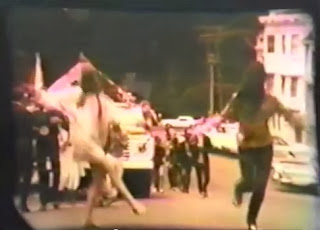Swiss businessman, social activist and thinker, and writer who received the first Nobel Peace Prize 1901 jointly with pacifist Frederic Passy.
The son of a Calvinist businessman and social worker (orphans, parolees, sick, poor), Henry Dunant spent much of his life working with prisoners and the poor. At age 21 he left college due to poor grades and began work in banking.
1958 His first book was written about his 1953 trip to the colonies of Algeria, Tunisia, and Sicily on assignment for his banking company. His second book was a book of flattery and praise to Napoleon III as part of an appeal to that emperor for land and water rights in the land concession his company (initiated with funds of 100 000 000 Swiss francs raised from family and friends) had gained in Algeria. He traveled to Solferino to present the book to Napoleon III.
1962 Dunant arrived in Solferino the day of a battle that left 23 000 wounded. Dunant organized the people, especially the women, to provide care to all who needed care regardless of nationality. Dunant organized the purchase of supplies and the erection of facilities and gained the release of Austrian doctors held by the French.
1962 The next month, back in Geneva, Dunant wrote of Solferino, describing the realities and effects of the fighting and suggested that there should be a neutral organization to provide care to all wounded. He paid for the printing of 1600 copies of his book and distributed it to political and military figures. He traveled Europe promoting his ideas.
At the 1963 meeting of the Geneva Society for Public Welfare the President of that society, jurist Gustave Moynier, made the book and its suggestions the topic of the meeting. A 5-man Committee was created to pursue this issue, making Dunant one of the members. Their first meeting is considered the founding of the ICRC.
In the following years, Dunant's career was thwarted by his conflict with Moynier. And 1968 Dunant became bankrupt, condemned and scandalized following the collapse of his company and for his deceptive practices in the bankruptcies. Geneva called for his resignation from the ICRC, which resignation took place that year. Dunant moved from his home to Paris where he pursued humanitarian ideas and plans, including plans for an international court to mediate international conflicts and for the creation of a world library. During this time he became increasingly in debt and shunned. He moved to London and began to receive some financial support from distant family members. 1887 he moved to Heiden, entering a hospital and nursing home in 1892.
1895 an editor of a St Gall newspaper, Georg Baumberger, wrote an article, "Henri Dunant, the founder of the Red Cross," which appeared in a German Illustrated Magazine. The article was soon reprinted in other publications throughout Europe, after which attention and support came to Dunant, including humanitarian prizes and letters (including a note from Pope Leo XIII and support from Russian tsarist widow Maria Feodorovna). 1897 a book was written by school-teacher Rudolf Muller about the origins of the Red Cross, Entstehungsgeschichte des Roten Kreuzes und der Genfer Konvention, altering the official history to stress Dunant's role, which had been downplayed, including the text of A Memory of Solferino. Dunant became more active in correspondence and article writing, especially on women's rights. He was involved in the 1897 founding of a "Green Cross" women's organization.
1901. A Norwegian military physician who had received a copy of Muller's book advocated Dunant's case to the Nobel committee, which case was controversial--Moynier and the whole ICRC had been nominated for the prize. The award was given jointly to Dunant and to Frederic Passy, the founder of the Peace League and activist (with Dunant) in the Alliance for Order and Civilization, an award which finally rehabilitated Dunant's reputation. The Nobel prize money was placed in a Norwegian Bank to prevent access by Dunant's creditors. Dunant never spent any during his lifetime.
Dunant received several other awards, including an honorary doctorate. In his final years, he lived in the nursing home in Heiden, and suffered from depression and paranoia. He was buried without ceremony in Zurich, according to his wishes.







.jpg)













.jpg)

































